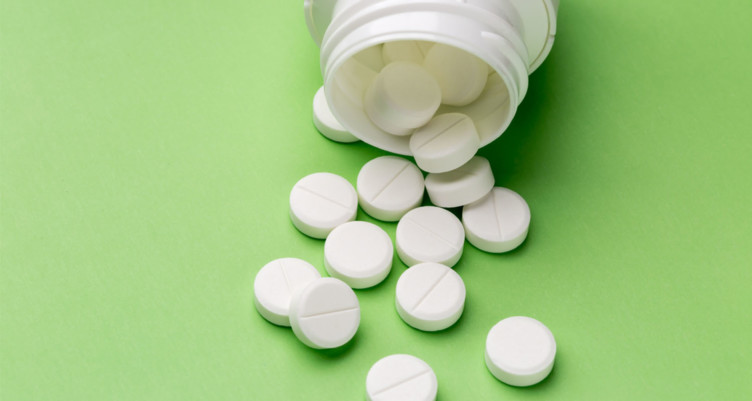What Is Serrapeptase? What to Know Before Trying It

- Serrapeptase is a proteolytic enzyme originally isolated from bacteria in silkworms.
- Proteolytic enzymes help break down proteins into amino acids.
- Serrapeptase is most commonly used to decrease inflammation, pain and swelling.
- Get the details about serrapeptase, why scientists are calling for more research and what you should know before you try it.
Serrapeptase is a proteolytic enzyme that breaks proteins in the body into amino acids. Originally isolated from a bacteria in silkworms, serrapeptase is taken as a natural dietary supplement to help decrease inflammation and pain.[1] Also known as serratiopeptidase, this enzyme has been used in various medical specialties, from surgery and orthopedics to dentistry and otorhinolaryngology.[2]
Scientists and health care researchers are still learning about the anti-inflammatory, mucolytic, proteolytic and fibrinolytic properties of serrapeptase. Read on to learn what we know so far, including why people are taking serrapeptase with another proteolytic enzyme, nattokinase.[3]
What is serrapeptase?

Enzymes are proteins that serve as catalysts for the trillions of chemical reactions that take place in the body every day. They ensure that essential metabolic processes are carried out in a timely and efficient manner.[4]
“We all have an enzyme bank account in our bodies,” explains Matt Gallant, CEO of BiOptimizers. “Everything from thinking to blinking, enzymes are involved. They’re the catalyst that kickstarts chemical and biochemical reactions in the body.”
The best-known enzymes are found in the digestive system, and they help the body break down and assimilate the macronutrients found in the foods you eat.
But enzymes do more than help you digest your food. Enzymes are essential to healing, protecting you from bacteria, reducing your inflammatory load and maintaining homeostasis.
Proteases like serrapeptase are called “systemic enzymes,” due to their ability to remain active beyond the gastrointestinal tract and be distributed via bodily fluids such as blood.[5] As a proteolytic enzyme, serrapeptase helps break down proteins into amino acids. This includes proteins that have built up in the body due to injury or illness.
Many enzymes naturally occur in your body, including digestive enzymes.[6] However, others need to be taken as supplements, as the body does not produce them (or doesn’t produce them in adequate quantities).
The original supplement form of serrapeptase was derived from Serratia E-15 protease, also known as Serratia peptidase—an enzyme made by a bioactive group of bacteria that evolved from the process that allows a silkworm to become a moth.[7] Serratia bacteria are essential to the silkworm’s survival. After it weaves a silk cocoon and begins transforming into a moth, the silkworm releases Serratia bacteria from its gut. The Serratia produce serrapeptase. Because this enzyme eats through protein, it dissolves the silk cocoon, opening it up for the silk moth to emerge.[8]
The enzyme naturally possesses anti-inflammatory properties, which is why it has been investigated as an alternative to commonly used non-steroidal anti-inflammatory agents. Some supplements sold in the US use a vegan alternative form of serrapeptase.
Now you know where it comes from, but what do we know about serrapeptase benefits?
Possible serrapeptase benefits

In Japan and Europe, serrapeptase has been used for decades because of its short-term pain-reducing and anti-inflammatory effects.[9][10] However, scientists are still trying to fully understand serrapeptase through additional studies and clinical trials.
A 2020 literature review published in the journal Biotechnology Reports found it to be a safe treatment option for certain areas of health. Studies cited in the review reported no side effects or adverse events in using serrapeptase for dental pain and swelling, treating knee osteoarthritis in patients with obesity, otorhinolaryngological inflammation and staphylococcal infections.[11] However, some of the studies are more than a decade old – or are too small to be statistically significant.
Here are a few potential serrapeptase benefits and caveats:
- Dental pain and swelling: A systematic review and meta-analysis published in the Journal of Maxillofacial and Oral Surgery in 2017 suggests that serrapeptase may be effective and safe to use after certain dental procedures such as removing an impacted molar. Serratiopeptidase yielded better results for treating trismus (lockjaw) than corticosteroids, but the enzyme showed no significant difference compared with corticosteroids for swelling. However, more research is needed, as only five studies were available for review.[12]
Inflammation: In a double-blind study, researchers found that serrapeptase helped with inflammation and swelling among people suffering from ear, nose and throat disorders.[13]
Infections: Serrapeptase may help improve the effectiveness of certain antibiotics by preventing bacteria from creating protective biofilms around themselves, thus supporting an overall treatment strategy for infections.[14]
Clotting: Serrapeptase may help with blood clots by breaking down tissue and fibrin, but researchers say more work needs to be done to understand this potential benefit.[15] (That’s why serrapeptase is often paired with the proteolytic enzyme nattokinase.[16] Derived from natto, a fermented soybean food, nattokinase exhibits strong fibrinolytic activity.) However, researchers say evidence is insufficient to support using serrapeptase for support cardiovascular health – and the data on long-term safety is lacking.[17]
Clearing mucus: While the mucolytic properties of serrapeptase have been documented, there isn’t enough new or peer-reviewed research to offer a definitive answer. Researchers in 2021 posited that numerous properties of serrapeptase could be useful in as an adjuvant for managing COVID-19.[18]
The bottom line: More research needs to be conducted to help solidify the links between serrapeptase and its potential health benefits.
Related: What Are Peptides? How Peptides Work for Fat-Burning and Recovery
Should you take serrapeptase?

Before you start taking serrapeptase or other supplements, check in with your doctor or health care provider first. They can offer their professional opinion and expert medical advice about whether serrapeptase is right for you—including potential serrapeptase dangers, such as negative interactions with other medications or supplements you’re taking. This is especially important in people who may be prone to allergic reactions as new forms of proteins are introduced into their diet.
Serrapeptase may thin bodily fluids, including blood and mucus. If you’re taking prescription anticoagulants like Warfarin, Xarelto or Eliquis, or you take other supplements like fish oil, aspirin or ibuprofen that may impact coagulation, proceed with caution.
Always be sure to choose supplements that use quality, tested ingredients and are made by producers who are transparent about their sourcing. Thoroughly read the label and any accompanying information, including recommended dose, side effects and when to take serrapeptase for best results, such as taking it on an empty stomach.
Sign up for early access to sales, product launches, the latest Bulletproof news and more!
This article has been updated with new content.



